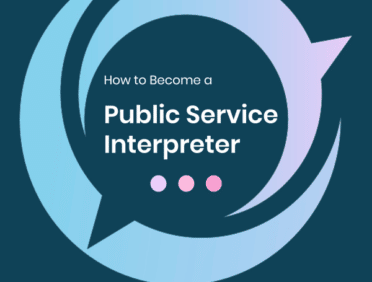Filter by
Healthcare Interpreter: Facilitating Communication in UK Healthcare
It is of the utmost importance to have efficient communication in order to guarantee both the quality of care and the safety of patients within the complex framework of the healthcare system in the United Kingdom. The presence of interpreters in the medical field improves the ability of healthcare professionals to communicate with patients who do not have a strong command of the English language.
In this introduction, we will investigate the roles, responsibilities, qualifications, and issues that healthcare interpreters face in the United Kingdom’s healthcare system.
Responsibilities of Healthcare Interpreters
Interpreters in the healthcare industry are highly trained specialists who are entrusted with the responsibility of facilitating communication that is both accurate and clear in medical settings. Their duty is to act as interpreters during conversations that take place between medical experts and patients. They are responsible for ensuring that medical information, symptoms, instructions and diagnoses are communicated precisely and accurately.
These individuals provide assistance during consultations, examinations, treatments, and emergency circumstances, all of which are instances in which prompt and accurate interpreting is essential to both service providers and service users.
Qualifications and Training
Formal qualifications, such as the Level 3 Certificate in Community Interpreting or the Level 6 Diploma in Public Service Interpreting (DPSI) with a specialisation in health, are often those that individuals in the United Kingdom pursue in order to achieve the goal of becoming a certified healthcare interpreter. These courses will teach you the essential skills for efficient interpreting in healthcare settings, including interpreting techniques, medical terminology, ethical guidelines, and practical interpreting abilities.
Continuous professional development (CPD) is strongly recommended in order to keep up with the latest developments in medical practices and for the purpose of maintaining proficiency.
Challenges Faced by Healthcare Interpreters
The position of a healthcare interpreter has a number of challenges, some of which include the management of complicated medical terminology, the navigation of cultural differences, and the maintenance of confidentiality and impartiality. During times of emergency, interpreters are required to maintain their professionalism while interpreting sensitive medical information and function efficiently under pressure.
Impact on Patient Care and Outcomes
The provision of skilled healthcare interpreters greatly improves the quality of treatment provided to patients and the outcomes achieved. By ensuring that proper communication is maintained, interpreters make it easier for patients to make informed decisions, increase their knowledge of diagnosis and treatments, contribute to patient safety and even save lives by lowering the likelihood of medical errors occurring.
According to a number of studies, having access to professional interpreters is associated with increased levels of patient satisfaction, compliance with treatment regimens, and a reduction in inequities in healthcare access among groups that speak a variety of languages.
The Vital Role of Healthcare Interpreters
Interpreters in the field of healthcare play an essential part in the healthcare system of the United Kingdom because they provide efficient communication between medical professionals and patients who have a limited command of the English language. Their specialised skills, moral standards, and dedication make a significant contribution to the delivery of healthcare services that are both egalitarian and of high quality.
The demand for qualified interpreters is expected to continue to increase as the healthcare environment continues to undergo transformations. This demand highlights the significance of interpreters’ involvement in advancing health equity and enhancing patient outcomes across a wide range of populations.
Frequently Asked Questions (FAQs)
Those who are able to facilitate communication between patients and healthcare practitioners who do not speak the same language are referred to as healthcare interpreters. It is impossible to overstate the significance of their position in ensuring that patients understand their medical conditions, the various treatment options available to them, and the advice given by healthcare professionals.
The National Health Service (NHS) in the United Kingdom serves a varied population with varying language requirements, making this a particularly relevant issue in this country.
For the purpose of ensuring that all patients receive healthcare that is both equitable and effective, health care interpreters help bridge language barriers. This, in turn, improves patient outcomes and satisfaction.
Generally speaking, in order to work as a healthcare interpreter in the United Kingdom, one must possess a qualification that is acknowledged in the field of interpreting. Qualifications such as the Level 3 Certificate in Community Interpreting or the Level 6 Diploma in Public Service Interpreting (DPSI) are examples of common qualifications, with the Level 3 Certificate being the most common.
Medical terminology, ethical issues, and the practical skills necessary for efficient interpreting in healthcare settings are some of the main topics that are covered in these courses. In order to guarantee accurate and clear communication, it is necessary to have a comprehensive mastery of both English and the target language, at a level equivalent to that of a native speaker or higher.
The completion of appropriate educational programmes and the successful completion of certification examinations are normally required in order to obtain certification as a healthcare interpreter in the United Kingdom. Learn Q’s Level 3 Certificate in Community Interpreting is one of the most well-known and popular qualifications.
Candidates must demonstrate that they are capable of adhering to ethical norms, possess knowledge of medical terminology, utilise the correct interpreting techniques and comprehend situations that are based on real-life circumstances in order to be successful in obtaining the Level 3 Certificate in Community Interpreting qualification.
Continuous professional development (CPD) is also very important since it enables interpreters to remain current with the most recent procedures and laws that are in place in the healthcare industry.
Yes, healthcare interpreters in the United Kingdom are required to comply with a number of regulations and standards that are intended to guarantee their professionalism and quality skills. To prevent misunderstandings and to guarantee the safety of patients, the National Health Service (NHS) has established criteria that require the employment of qualified interpreters in medical contexts.
The National Register of Public Service Interpreters (NRPSI) also provides a regulatory framework for interpreters. This framework establishes criteria for behaviour, professional development, and practice.
It is also vital to comply with the Data Protection Act of 2018 in order to guarantee the privacy and safety of patient information.
There is a demand for healthcare interpreters in a variety of healthcare contexts, such as hospitals, general practitioner’s offices, mental health services, dental clinics, and public health programmes. For the purpose of ensuring that patients and healthcare personnel are able to communicate effectively with one another, interpreters are frequently necessary in hospitals during admissions, consultations, and surgical operations.
In general practitioner offices, they provide assistance during routine checkups and referrals to specialists. Interpreters are especially helpful for mental health services because they enable patients to precisely articulate their ideas and feelings, which is essential for appropriate diagnosis and treatment.
Interpreters in the healthcare industry are responsible for maintaining patient confidentiality by following stringent ethical principles and regulatory guidelines. Since they must abide by the confidentiality requirements outlined in the Data Protection Act of 2018, they are required to secure personal and sensitive information.
Interpreters are required to treat all data with the utmost care and must not divulge any patient information to any third parties that are not authorised to receive it.
Training programmes for interpreters will place an emphasis on the significance of keeping anonymity and offer solutions that can be implemented in a variety of situations.
It is necessary for a healthcare interpreter to possess a variety of talents in order to be effective. These skills include fluency in both English and the target language, a profound awareness of medical terminology, specific interpreting techniques and the flexibility to transmit information in a timely manner while maintaining accuracy.
They need to possess good interpersonal skills in order to connect effectively with both patients and healthcare providers.
For the purpose of comprehending and honouring the cultural nuances that can have an impact on communication, cultural competence is absolutely necessary. Empathy, patience, and the ability to maintain a neutral and professional demeanour are all qualities that are required of interpreters in every circumstance.
There are two ways that healthcare interpreters might make their living: either as independent contractors or as employees of healthcare providers. It is more common for independent interpreters to work on a contract basis for different interpreting agencies (aka LSPs – Language Service Providers). This arrangement provides them with the opportunity to explore a wider range of experience and flexibility.
On the other hand, although extremely rare, there may be opportunities to work directly for healthcare providers. Interpreters who work for a particular healthcare provider might have a more stable position with regular hours and benefits.
For both routes, it is necessary to adhere to professional standards and continue one’s education in order to keep one’s knowledge of medical practices and regulations up to date and to maintain a high level of service quality.
Because of the nature of their work, healthcare interpreters in the United Kingdom face a variety of obstacles. The ability to communicate in a way that is both correct and understandable in the face of complicated medical language is one of the key obstacles. Interpreters are required to traverse the cultural gaps that exist between patients and healthcare practitioners, which can have an impact on both the level of understanding and the outcomes of treatment.
In order to overcome the issues of time constraints during visits and crises, interpreters must work efficiently without sacrificing accuracy.
Last but not least, it is of the utmost importance to uphold ethical standards and confidentiality practices while dealing with sensitive medical information.
One of the most important skills for healthcare interpreters is the ability to grasp difficult medical language. In most cases, interpreters are required to go through extensive training, which often includes mastering medical terminology in both the source language and the target language.
In order to guarantee accurate interpreting, they become familiar with the general medical illnesses, treatments, and procedures that are commonly encountered. This can be accomplished through the creation and utilisation of glossaries, reference materials, and web resources by interpreters in order to better comprehend and interpret technical jargon.
To ensure that they provide accurate interpreting in medical contexts, interpreters are required to participate in continuous professional development (CPD). This allows them to remain current with the ever-changing medical terminology and practices.
A number of actions are required in order to guarantee efficient communication when scheduling a healthcare interpreter for a medical appointment. Interpreter services are often available to healthcare professionals through in-house teams, interpreter agencies (most common), or freelance interpreters.
To begin, it is necessary to determine the linguistic requirements of the patient and then make arrangements for an interpreter who is proficient in both English and the language spoken by the patient. It is of the utmost importance to verify the availability of the interpreter and to make certain that they possess the required qualifications and training. Usually healthcare providers will have an agreed process in place and often a contract with a particular agency, so it is advisable to find out what that is for when you need to book an interpreter.
If the interpreter arrives early on the day of the visit in order to meet with the healthcare personnel, become acquainted with the patient’s medical history if it is possible, so that you can help prepare them for the interpreting session at hand.
Interpreters in the healthcare industry are responsible for managing cultural differences by applying cultural competency and sensitivity. They acknowledge the fact that cultural views, conventions, and communication styles can have an impact on the decisions and outcomes that occur in the healthcare industry.
It is the goal of interpreters to bridge these disparities by elucidating cultural misunderstandings, facilitating conversations regarding cultural practices that have an effect on health, and helping ensure that patients’ cultural choices are honoured.
Qualified interpreters who have received training in cultural competency are equipped with skills that enable them to traverse delicate themes and encourage successful communication between patients and healthcare providers, which ultimately results in an increase in patient satisfaction and efficiency in the delivery of healthcare.
I
It is true that continuous education is necessary for healthcare interpreters in the United Kingdom in order to keep their skills current and to keep up with the latest advances in the business.
Participation in continuing professional development (CPD) activities is something that interpreters are encouraged to do by professional organisations like the Chartered Institute of Linguists (CIOL), the National Register of Public Service Interpreters (NRPSI) and Interpreting Agencies.
Participating in workshops, conferences, webinars, and courses that are linked to healthcare interpreting, medical developments, ethical guidelines, and legal updates are some examples of these types of activities.
Maintaining high standards of practice, contributing to their own professional development, and providing quality services to both patients and healthcare professionals are among the outcomes that can be achieved through continuing education for interpreters.
When healthcare providers verify the qualifications of interpreters through credible sources, they may assure that they are employing qualified and certified interpreters. They ought to consult or work with the National Registry of Professional Interpreters (NRPSI), which maintains a register of qualified interpreters.
During the appointment process, providers should request proof of certification, such as the Level 3 Certificate in Community Interpreting, the DPSI or other reputable certifications in healthcare interpreting. Asking interpreters about their experience, the languages they speak, and whether or not they are comfortable with medical situations is also important.
If you use interpreters provided by reputable Language Service Providers (LSPs) aka Interpreting Agencies, they will carry out stringent checks on interpreters who they work with and will have already carried out the activities mentioned above.
In order to further ensure that interpreters are competent and professional, it is important to establish agreements with interpreter agencies that adhere to high requirements for recruitment and training employees.
Healthcare interpreters play a key role in improving patient outcomes by promoting correct communication between patients and healthcare practitioners. This is accomplished through the provision of interpreting services. Patients are guaranteed to have a complete comprehension of their diagnoses, treatment options, pharmaceutical instructions, and subsequent care when they get effective interpreting.
Because of this clarity, decisions may be made with more information, patient treatment can be improved, and the likelihood of medical errors can be decreased.
Interpreters contribute to the satisfaction of patients and the trust that they have in healthcare services, both of which are essential for the development of strong connections between patients and providers.
There is a proven correlation between having access to expert interpreters and improved health outcomes, as well as reduced inequities in the delivery of healthcare, according to research reports.
There are some government incentives from time to time but these are subject to change.
If you claim benefits such as Universal Credit, you might get help from your work coach at the Job Centre. The Job Centre have access to funding through the ‘Low Value Procurement’ scheme, which forms part of the ‘Flexible Support Fund’. It does depend on individual circumstances, but it is definitely worth asking and naming our course. I will send you an email about the course that you can show to them at the end of this chat that might help you to secure funding.
Make sure you mention the ‘Low Value Procurement’ scheme, and the ‘Flexible Support Fund’ specifically. If your work coach doesn’t already know about them that should prompt them to find out.
It’s down to individual Job Centres and Work Coaches whether they provide you funding or not – some students get it, some don’t. I think it often depends on your circumstances including household earnings etc.
It is imperative that healthcare interpreters respond quickly and effectively in order to allow communication in the event of an emergency. During the process of analysing vital information such as symptoms, medical history, and treatment recommendations, they are educated to place an emphasis on clarity and accuracy.
It is common practice for interpreters to accompany emergency response teams to hospitals or accident scenes. Once there, they provide interpreting in real time to facilitate the speedy assessment and treatment of patients.
The ability to communicate effectively in times of crisis can save lives, which is why interpreters need to be able to maintain their composure under pressure and swiftly adjust to surroundings that are quick-paced, all while preserving their professional conduct and safeguarding confidentiality.
The legal rights of patients in the United Kingdom to get linguistic help, which may include healthcare interpreters, are designed to ensure that patients are able to communicate effectively in healthcare settings. Following the passage of the Equality Act in 2010, the National Health Service (NHS) and other healthcare providers are legally compelled to make reasonable accommodations for patients who have limited English proficiency or communication difficulties.
This includes making arrangements for interpreters to be present throughout admissions to the hospital, consultations, and treatments in order to guarantee that patients comprehend the medical care they are receiving and are able to take part in the decision-making process.
It is the responsibility of healthcare practitioners to satisfy patients’ requests for interpreters in a timely and efficient manner. Patients have the right to request an interpreter.
As a result of the availability of remote interpreting services made possible by technology, particularly telehealth platforms, the function of healthcare interpreters has been revolutionised. Through the use of telehealth, interpreters are able to establish virtual connections with patients and healthcare providers, which enables them to facilitate communication through the use of video conversations or teleconferences.
The use of this technology makes it easier for those living in remote or underserved areas to get language services, and it also minimises the requirement that interpreters be physically present at each and every appointment.
To maintain the same high standards of interpreting as they do in face-to-face contacts, interpreters need to learn how to use telehealth platforms in a secure and efficient manner while also protecting patients’ anonymity.
It is of the utmost importance for healthcare interpreters to take ethical issues into account in order to maintain professional standards and protect the welfare of patients. The norms of confidentiality, impartiality, and accuracy in interpreting are among the most important ethical standards.
To show respect for the privacy of their patients, interpreters are required to refrain from divulging any personal information that they acquire during appointments. It is important for them to retain their neutrality by accurately communicating the meaning and tone of messages without adding any personal ideas or prejudices.
Interpreters are required to manage cultural and ethical challenges with sensitivity.
In healthcare, to be sure, interpreters have the ability to specialise in particular areas of medicine, which allows them to better meet the needs of patients and improve the efficiency of communication. As part of the process of specialisation, one must undergo further development and become familiar with specialised terminology, procedures, and patient populations.
For instance, interpreters working in mental health settings are required to have a working knowledge of psychological terminology and a sensitivity to the nuances that are present in discussions pertaining to mental health. Within the same vein, interpreters working in paediatrics are required to modify their mode of communication in order to accommodate both children and their families.
It is possible for interpreters to build competence in these areas through participation in continual professional development. This allows interpreters to provide targeted support to healthcare providers and patients.
Patients have the ability to request a healthcare interpreter for their appointments by alerting their healthcare physician or the booking receptionist of their language need. In order to make the arrangement of interpreting services easier, healthcare providers have established protocols.
These protocols may be implemented through in-house teams, interpreting agencies, or telehealth platforms. In an ideal scenario, patients should request an interpreter when booking appointments in order to guarantee that they are available.
To facilitate successful communication during medical consultations and treatments, it is essential for patients to define their preferred language, as well as any particular dialects, cultural or other considerations that they may have.
Individuals who are interested in becoming healthcare interpreters in the United Kingdom can, in fact, enrol in specialised training programmes and classes. The best known and most widely coveted qualifications are the Level 3 Certificate in Community Interpreting (for beginners and the most common qualification for healthcare interpreters) and the Level 6 Diploma in Public Service Interpreting (DPSI) (for experienced interpreters), preferably with a concentration in health.
In the context of healthcare settings, training covers crucial issues such as medical terminology, techniques for interpreting, ethical principles, and cultural competence.
To further promote the continued growth of healthcare interpreters, professional organisations such as the Chartered Institute of Linguists (CIOL) and the National Register of Public Service Interpreters (NRPSI) provide opportunities for continuing professional development (CPD), as well as resources, workshops, and other educational opportunities.
Through participation in continuous professional development (CPD), healthcare interpreters are able to remain current with the latest developments in medical procedures and terminology.
Those who are interested in healthcare interpreting and medical breakthroughs participate in workshops, conferences, and seminars relating to these topics. Additionally, interpreters participate in self-study by reading professional literature, medical journals, and online resources in order to keep themselves up-to-date on the latest developments in medical procedures, therapies, and regulatory adjustments.
Maintaining their skill, providing accurate interpreting, and upholding the highest standards of care for both patients and healthcare providers are all outcomes that can be achieved by interpreters who stay current with the latest developments.












